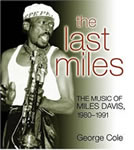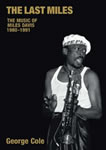Miles Davis’s musical career began with Charlie Parker and ended with the rapper/producer Easy Mo Bee. In July 1991, Miles recorded six tracks with Easy Mo Bee as part of a planned hip-hop album. But the recordings were made barely a month before his death and so Miles never did complete the album. The resulting album, Doo-Bop, was released in 1992 amid much controversy over whether Miles should have been trying to mix jazz and hip-hop – the full debate can be found in The Last Miles. But since then, more and more artists have mixed jazz and hip-hop and opposition towards the fusing the two genres together is softening.
Now, thirteen years after the release of Doo-Bop, Easy Mo Bee has announced plans to remix Doo-Bop by adding singers, rappers and live musicians. In an exclusive interview for TheLastMiles.com, Easy Mo Bee talked about his plans and the motivation behind the project.
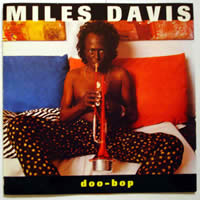
Doo-Bop album cover
The Last Miles: The history of Miles Davis starts with Charlie Parker and ends with you – how does that make you feel?
Easy Mo Bee: You know, now that you said that, I guess you’re right – I never really thought of that. It’s an interesting way to put it! How do I feel about? Honoured. As I said, I never even thought it that way, so that’s how amazing and astounding it is to me.
TLM: Doo-Bop had a mixed reaction when it was first released and there was some hostile reaction from both the jazz and hip-hop communities. Do you think that over the years, people have caught up with what you and Miles were doing in terms of fusing hip-hop and jazz?
EMB: Maybe, [although] not on a journalistic level but more on a personal, consumer-type level. A lot of people come back and say ‘Yo, you did Doo-Bop! I had never really listened to that – that was nice man!’ I’m glad to hear that, but I’m like ‘where the hell were you ten years ago?!!’
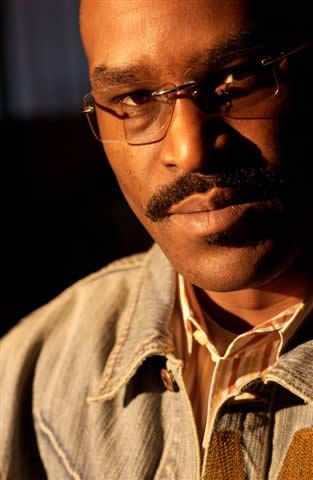
Easy Mo Bee © Copyright and courtesy Easy Mo Bee
TLM: What impact did working with Miles have on your career?
EMB: If you’ve got the opportunity to work with Miles and watch him and his own professionalism, it made me really want to be conscious of every little thing I did from that point on – it kinda upped my ante and made pay more attention to do the things I was doing. Because I worked with Miles, it led to me working on the Blue Note remix project [where hip-hop artists remixed classics music from jazz artists such as Donald Byrd and Horace Silver]. It paved the way for me to work with [saxophonist] Candy Dulfer. I was also supposed to work with [trumpeter] Tom Browne, but for some reason it didn’t happen. But if you see this Tom, get in touch, because I still want it to happen!
TLM: If Miles had lived longer, would you two have done any further collaboration?
EMB: Oh yeah. Miles had plans for me to take me on tour and if you’ve got a guy who’s looking to take you on tour, inevitably some time in the future we probably would have worked together again, which would have been great. That second time around, I definitely would have incorporated more live musicians into it, which what I intend to do with the Doo-Bop remix album.
TLM: How did the idea for a remix album come about?
EMB: I got the idea when I was rummaging through my stuff. I went to a merchandising convention in New York and all kinds of companies were there and I’m walking around and gathering literature and making contacts. And they had a booth dedicated to Jimi Hendrix. The Jimi Hendrix Estate was showing various items that were available – music, tee-shirts, memorabilia, what have you. So I picked up a catalogue and I found it later on when I went through my stuff and they’re showing you things you can order – albums, tee-shirts, buttons whatever – and it just got into my mind ‘why isn’t the Miles Davis Estate as active as that?’
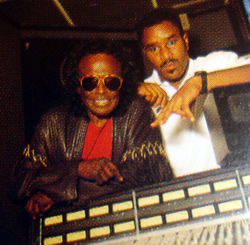
Miles and Easy Mo Bee at the Doo-Bop sessions
Photo by Michael Benabib © Copyright Warner Bros Records
TLM: You’ve said that you wanted to do this album to bring Miles to a younger generation and keep his legacy alive in the same way that the Hendrix Estate had done this with Jimi?
EMB: There are 16- 17-year old kids who know who Jimi Hendrix is because of how active the [Hendrix] Estate is and in items of memorabilia and music that is available. So I’m thinking ‘why shouldn’t the world – including kids – know more about Miles?’ That’s when I had the idea for a new album. My new lawyer – Peter Shukat – was Miles’s old lawyer. He’s also the attorney for the Miles Davis Estate. He thought it was a wonderful idea, so it came at a perfect time.
TLM: Who’ll be on the re-mixed Doo-Bop?
EMB: We already have a commitment from Alicia Keys – big shot to MDK Management/Entertainment, who handle her. They were very pleased with the work I just did with Alicia and when they heard about the concept for the Doo-Bop remix album, they called and said: ‘Alicia would love to be on the album.’ I wanna get really artsy with it – I don’t mean that it’s so artsy that it’s corny, but I’m looking to be very selective with the featured artists. I definitely want to include more live musicians.
The last album was like a sampled hip-hop theme. Hip-hop will definitely be an element on the [remixed] album, but I’m looking to take it a little bit further – I want to take it higher. What I have as a dreamscape in my mind for the featured artists are people like Alicia Keys, Jill Scott, Talib Kweli. One of the most gifted and talented people I’ve heard in the last ten years is D’Angelo. D’Angelo and Miles – it just gels in my mind. You know, it would also be great to have people who worked with Miles in his earlier career involved and, as far as people who are still alive, I can’t think of anyone greater than Quincy Jones. Herbie Hancock, Marcus Miller – these guys could take it to another level.
TLM: So are you negotiating with these artists?
EMB: We’ve begun to reach out to artists.
TLM: On Doo-Bop you re-worked two old Miles recordings and composed two new tunes, “Fantasy” and “High Speed Chase” around them. Would you like to do the same thing with the new album?
EMB: If they have some unreleased material they’d like to give to me to re-work, that would be fine too. In fact, I hope that would happen. Just to hear about any unreleased Miles should turn people on. I think it might be a bit easier doing it today too [at the time, there was a lot of controversy over making new music from old Miles recordings]. In other words, now is a better time to take chances. Look, if those guys could take Jay-Z’s Black album and mix it with the The Beatles’ White album [to produce the infamous Grey Album], then it’s not such a risky time now! It shows the time is right for something like this.
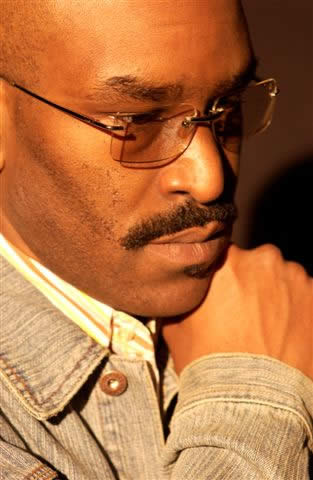
Easy Mo Bee © Copyright and courtesy Easy Mo Bee
TLM: What do you think Miles would have done if he had lived longer?
EMB: Of course we can’t bring him back to find out, but I think probably the next area would be maybe jungle, trip-hop, acid jazz. If Miles Davis was still alive I could picture him working with Tricky and experimenting with The Chemical Brothers. He’d covered everything else and there was nothing else to do, so experimenting with these guys would have fitted him.
TLM: When are you looking to release the album?
EMB: It’s down to when we get a record company interested and I can’t see a company not being interested. The younger kids today need to know more about Miles Davis and I think this album will help make that happen.
With special thanks to Joana Casas
Easy Mo Bee’s official website: www.easymobee.com
